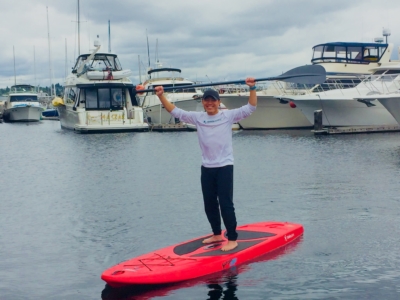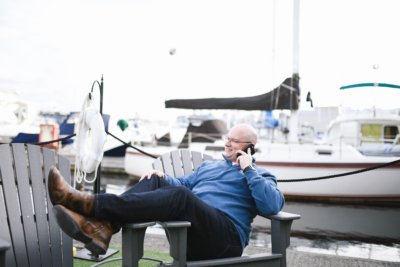
One of my favorite things about thinkspace Seattle is that I can see so clearly over Lake Union to Eastlake and no matter today or in five years, it will be the same or similar view; that is they won’t be building on top of water anytime soon. I also find watching the seaplanes taking off and landing fascinating not to mention the fancy of all the yachts, sailboats, and rowers I see daily. While sitting in the coworking space I find that I am oftentimes inspired to write, to create, or brainstorm with my team and apparently this isn’t unique. According to marine biologist and author Wallace J. Nichols, “a mildly meditative state characterized by calm, peacefulness, unity, and a sense of general happiness and satisfaction with life in the moment” is triggered when we are in, or near water.
 Life and work might seem high-stressed but at thinkspace it’s juxtaposed to nature, so harnessing that balance is accessible. When I’m perplexed or feeling confined, I’m literally a doorway away from the patio, or a walk along the waterfront. As I write this I’m looking at the water investigating my own thoughts, which are indeed introspective. If anything else, I’m inspired to show up because I love where I get to spend my day, and the work will come. If you’re interested in reading more about Nichols’ book here’s a great article from The Washington Post.
Life and work might seem high-stressed but at thinkspace it’s juxtaposed to nature, so harnessing that balance is accessible. When I’m perplexed or feeling confined, I’m literally a doorway away from the patio, or a walk along the waterfront. As I write this I’m looking at the water investigating my own thoughts, which are indeed introspective. If anything else, I’m inspired to show up because I love where I get to spend my day, and the work will come. If you’re interested in reading more about Nichols’ book here’s a great article from The Washington Post.